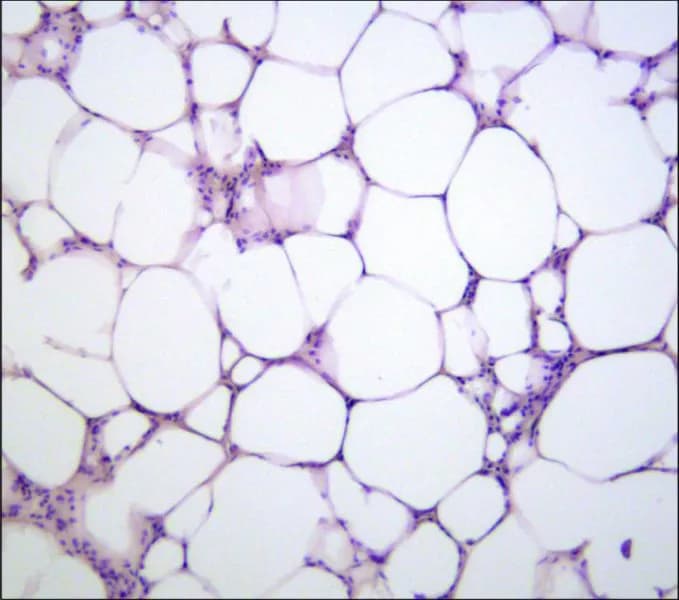SORLA is a protein that influences the balance of metabolic processes in adipose tissue, a particular form of fat. Too much of it makes fat cells overly sensitive to insulin, which leads them to break down less fat. SORLA was previously known for its protective role in Alzheimer's disease.
SORLA is part of a machinery within cells that sorts proteins to processing where they are either broken down or flagged for recycling. In Alzheimer's, SORLA reduces levels of proteins that form dangerous deposits. But it has another role in the fat cells of adipose tissue: it makes them oversensitive to insulin, leading to excessive deposits of fat.
Details of this metabolic function have now been determined by a team of researchers headed by Prof. Thomas Willnow and Postdoc Dr. Vanessa Schmidt of the Max Delbrück Center for Molecular Medicine in the Helmholtz Association (MDC), as well as researchers from the German Institute of Human Nutrition, the University of Leipzig and Umeå University, Sweden. Their findings appear in The Journal of Clinical Investigation.
The scientists described how SORLA functions in detail in studies of human samples, mouse models and cell cultures. Previously, the link between certain hereditary forms of the SORLA gene, larger waist circumferences and increased levels of body fat was only known from genetic studies.
Analyzing the adipose tissue of 362 overweight people, the researchers found that the more SORLA people have in their fat, the more overweight they will be. They established a causal link by conducting experiments on mice with a form of the SORLA gene that produced high levels of the protein only in adipose tissue. When the animals began eating high-calorie food, they quickly became obese. By contrast, mice that had a deactivated SORLA gene and ate the same food were markedly thinner than mice with normal SORLA levels.
Cells with an excess of SORLA clearly reacted more strongly to insulin. Studies on cell cultures allowed the researchers to follow SORLA and the receptor molecules that cells use to detect insulin on their way through the cell's sorting stations. SORLA marked the insulin receptors for recycling and prevented them from being broken down in compartments called lysosomes. With higher levels of SORLA, more insulin receptors reached the surface of the cell. The higher number of receptors meant that more insulin molecules could bind to the cell, making it oversensitive to the hormone. This causes the cell to break down less fat than it should.
Disruptions in the metabolic processes that are triggered by insulin are a feature of diabetes. With their findings, Schmidt and Willnow have discovered an entirely new route by which insulin signals are passed within cells, which will likely be significant in treating people with the disease.
"Type 2 diabetes also involves a type of insulin resistance, but this is not the only problem," Willnow says. "Another way metabolism can be disrupted is when adipose tissue becomes oversensitive to insulin."
The study showed that when mice ate normal food, their weight didn't change much whether they had normal, excessive, or low levels of SORLA. Mice with too much SORLA only gained extreme amounts of weight when they ate "fast food" -- a diet high in fat and carbohydrates. "This suggests that adipose tissue that is overly sensitive to insulin only becomes a problem if you have an unhealthy diet," says Willnow.
The above post is reprinted from materials provided by Max Delbrück Center for Molecular Medicine in the Helmholtz Association. Note: Materials may be edited for content and length.
Disclaimer: DoveMed is not responsible for the adapted accuracy of news releases posted to DoveMed by contributing universities and institutions.
Primary Resource:
Schmidt, V., Schulz, N., Yan, X., Schürmann, A., Kempa, S., Kern, M., ... & Willnow, T. E. (2016). SORLA facilitates insulin receptor signaling in adipocytes and exacerbates obesity. The Journal of Clinical Investigation,126(7).
Related Articles
Test Your Knowledge
Asked by users
Related Centers
Related Specialties
Related Physicians
Related Procedures
Related Resources
Join DoveHubs
and connect with fellow professionals


0 Comments
Please log in to post a comment.